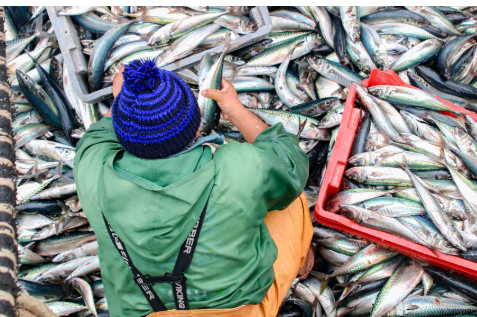FAO Supports India’s Fishing Sector Adaptation
The Food and Agriculture Organization (FAO) is assisting India in addressing climate change impacts on aquaculture. Manuel Barange, the FAO’s Fisheries & Aquaculture Division Director, brought to light the need for policy changes to support small fishing businesses. He spoke about the changing ocean conditions affecting fish populations and emphasized the importance of good management for conservation.
Climate Change and Its Effects
Climate change is leading to reduced ocean productivity. Fish species caught will also shift. Adaptation in fishing methods is crucial. New fish types should be promoted to expand consumer choices.
Importance of the Blue Economy
The blue economy plays a vital role in nutrition and food security. Oceans cover 70% of the Earth but contribute only 5-10% of human food. This imbalance needs to be addressed for sustainable development.
The fisheries sector faces overfishing, overcapacity, and waste issues. These challenges must be tackled to ensure sustainability. Effective management practices are essential for long-term viability.
Growth of Aquaculture in India
Aquaculture is expanding rapidly in India, outpacing global growth rates. Sustainable systems are necessary for fair development. The FAO aims to assist in organic aquaculture growth that creates food and job opportunities.
The FAO helps establish legal frameworks to encourage private investment in aquaculture. Incentives like subsidies and tax breaks are vital. Political backing is necessary for the aquaculture sector’s growth.
Focus on Small-Scale Fisheries
Small-scale fisheries provide about 50% of the world’s fish. These producers need representation in decision-making processes. Supporting small producers is crucial as they depend on fishing for their livelihoods.
Different fishing methods have varying environmental impacts. Less harmful methods, like purse seine nets, should be encouraged over destructive practices, such as bottom trawling. Proper regulation is essential for sustainable fishing practices.
Important Facts for Exams:
- FAO – The Food and Agriculture Organization focuses on global food security. It assists countries in sustainable agricultural practices and addresses climate change impacts on fisheries and aquaculture.
- Blue Economy – The blue economy refers to the sustainable use of ocean resources. It supports nutrition and food security, yet oceans contribute only 5-10% of global food supply.
- Aquaculture – Aquaculture is the farming of aquatic organisms. It is growing rapidly in India, offering potential for sustainable food production and job creation in response to climate change.
- Small-Scale Fisheries – Small-scale fisheries account for approximately 50% of the world’s fish supply. They are vital for livelihoods, yet often lack representation in decision-making processes.
Month: Current Affairs - November, 2024
Category: Agriculture Current Affairs


